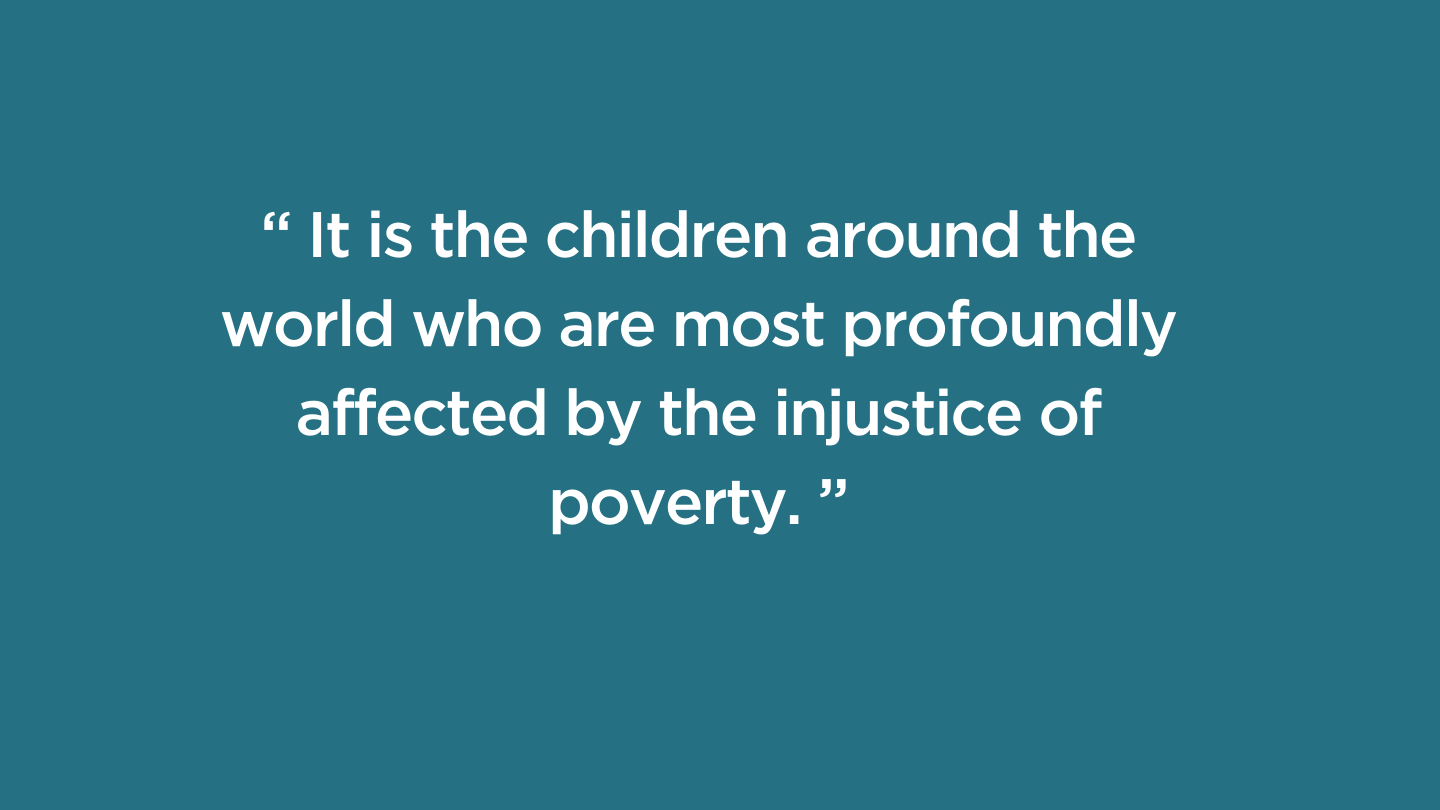Eyes to SeeSample



In Matthew 25, Jesus told one of His most startling parables. He says that a time will come when the sheep are separated from the goats: Those who will receive their inheritance with Christ and those who will be told to depart from Him. How were His followers distinguished? They were the ones who offered water and food, showed hospitality to strangers, clothed them, and visited them. When we notice and serve the poor, we are following the way of Jesus.
While there are needs in our own neighbourhoods and cities, children worldwide are most profoundly affected by the injustice of poverty. Compassion’s President Emeritus, Wess Stafford, says, “No matter what the ill of society, it tends to spiral downward and eventually land with its cruelest and most smothering impact on our littlest citizens…When hunger and famine strike a nation, adults become weak and hungry, but the children most often starve to death. When disease arrives with all its fury, adults can become very sick, but the first to die are usually the children. When war erupts…it is the littlest victims who pay the price…when prostitution reaches its sickest, most depraved form, it becomes child prostitution.”
While the world's needs are extensive, God doesn’t ask us to respond to every need but simply to obey His call on our own lives.
Pray: Again, it all starts with prayer. When we pray for the world, God changes our hearts and lives. (Romans 12:2)
- Bring your fears about the world to God in prayer.
- Ask God to guide you in knowing specifically where He wants you to engage with the needs of others.
- Consider fasting while praying, especially while making specific requests.
- Sign up for prayer guides for organizations doing good work.
- Incorporate prayer for world issues into group prayer times.
Live:
- Help your church build partnerships with other churches located in areas of great need.
- Raise awareness and advocate for issues impacting children (poverty, hunger crisis, child labour, slavery).
- Reward companies with your business when they demonstrate practices that empower impoverished people.
- Take steps to lessen your impact on the environment.
Give:
- Donate to organizations that support the work of local churches in the developing world.
- Support organizations that work with the root causes of poverty, not superficial or short-term solutions.
- In times of natural disaster, send donations for relief quickly.
- Help people to access vital infrastructure such as safe water and sanitation.
- Look for opportunities to change lives holistically – providing help for people economically, socially, physically, and spiritually to equip them to break the cycle of poverty in their own lives.
Our God, the One who says that people are worth far more than sparrows (Matthew 10: 29-31), sees the state of our world with compassion. He also invites us to join Him in spending ourselves on behalf of those in need through our prayers, lives, and giving.

Reflect:
How is Jesus calling you to pray, live and give to the world's needs?
Pray:
Lord, thank You that You are a God of compassion. Thank you for allowing the Church and me to be Your hands and feet to help those in need. Help us to do Your will. Amen.
Scripture
About this Plan

Jesus had compassion, especially for those facing poverty, injustice, and inequality. What is our response? Do you see the world the way God does? If you want to go deeper and understand the spiritual root of poverty, join us for this 42-day video-assisted bible study from Compassion Canada. Ideal for group study or a challenging personal journey. Abridged and Updated.
More
We would like to thank Compassion Canada for providing this plan. For more information, please visit: http://cmpsn.ca/YV
Related Plans

How God Used Prophets in the Bible

Trail Builders: Riding Together in Discipleship

IHCC Daily Bible Reading Plan - June

Transforming Encounters: The 40-Day Challenge (Luke)

The Power of Love: Finding Rest in the Father’s Love

Acts 11:1-18 | the Church Will Criticize You. Don't Criticize It.

God's Goodness and Human Free Will

Solitude & Silence

The Wedding at Cana
